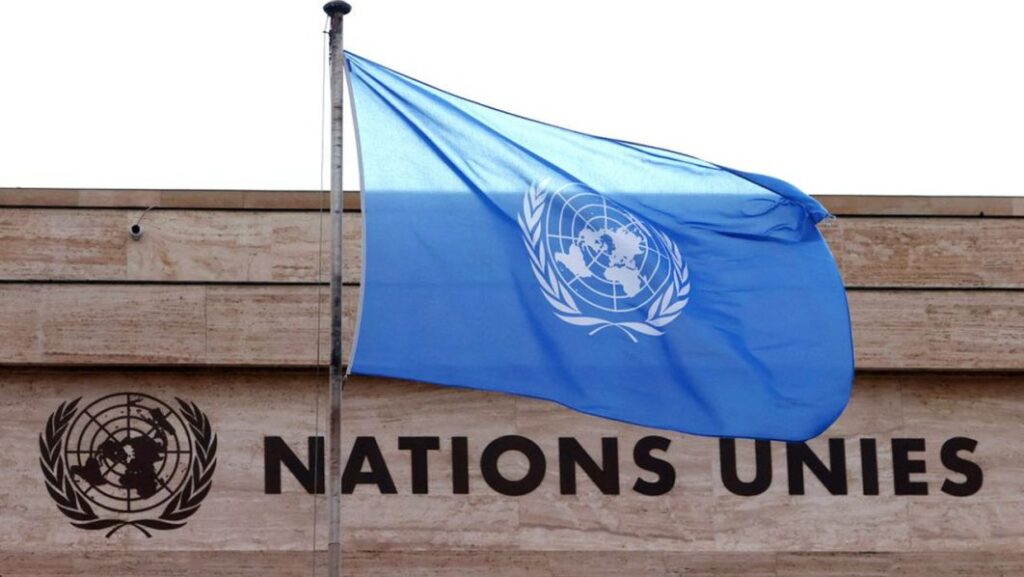The United Nations has warned that armed groups in Colombia are increasingly turning to social media platforms such as TikTok and Facebook to recruit children into their ranks.
According to a new report by the UN Human Rights Office in Colombia, 474 cases of recruitment or use of children under 18 were verified between 2022 and 2024, with a sharp increase reported in the first quarter of 2025 alone. Of 118 reported cases this year, 51 have already been verified by UN investigators.
The report raises the alarm over a growing trend of digital coercion, with armed groups using platforms like TikTok to lure children with promises of wealth, glamour, and power. In at least 36 verified cases, recruitment took place within schools, but it is the use of social media that the agency calls a “grave concern”.
“It’s horrific, toxic and ugly,” said Scott Campbell, Colombia’s representative for the High Commissioner for Human Rights. “Illegal groups are using social media to lure girls and boys into their ranks, which is increasing violence across the country and strengthening narco-trafficking.”
Campbell described how children are promised mobile phones, money, and motorbikes. In some cases, girls are also offered cosmetic surgery. The content used to entice them often depicts parties, clubs, designer clothing, and heavy weaponry, glorifying the lifestyle of armed group members.
Elizabeth Dickinson, a senior analyst at the International Crisis Group, said recruitment often begins with online messaging. “The first contact frequently comes through social media,” she said. “TikTok is especially saturated with videos posted by armed groups depicting the perks of the lifestyle.”
Investigators from Colombia’s Special Jurisdiction for Peace (JEP) found some posts garnering up to 625,000 views, underscoring the viral reach of such propaganda.
Campbell criticised major tech firms for not doing enough to stem the problem. “If children were being recruited into illegal groups in London or Silicon Valley, social media companies would be putting huge resources into this,” he said.
Meta replies UN
In response, TikTok and Meta, the parent company of Facebook, stated they were cooperating with state authorities and actively removing harmful content.
Child recruitment has long been a scar on Colombia’s conflict-ridden past. The Revolutionary Armed Forces of Colombia (FARC), which demobilised after the 2016 peace agreement, was found by the JEP to have recruited more than 18,000 minors during its insurgency. Yet the trend continues despite the peace deal. Since 2016, one child has been recruited every 48 hours on average, according to JEP.
Violence across Colombia has surged in recent months, further fuelling recruitment. In January, over 50,000 people were displaced amid clashes between armed groups near the Venezuelan border. In June, a wave of coordinated bombings and shootings in the country’s south-west left at least seven dead and more than 50 injured.
The use of minors in armed groups is also intersecting with high-profile national events. Earlier this month, a 15-year-old boy was charged with the attempted assassination of presidential candidate Miguel Uribe. Authorities have linked the attack to an organised criminal group, adding further urgency to the issue.
The International Crisis Group recently warned that the rate of child recruitment has reached its highest level in over a decade. Many families, fearing retaliation or social stigma, are too afraid to report their children missing, allowing the crisis to deepen unchallenged.
In a shocking development earlier this year, 20 of the 112 members of the armed 33rd Front who surrendered to authorities were discovered to be minors. In another incident, following a deadly clash that claimed nearly two dozen lives, a third of the deceased were found to be under the age of 18.
As Colombia edges towards a presidential election next year, human rights organisations fear the country’s children will increasingly be used as pawns in a violent struggle for power and control. The UN has called for urgent action from both national authorities and global tech companies to address the crisis before more lives are lost.



